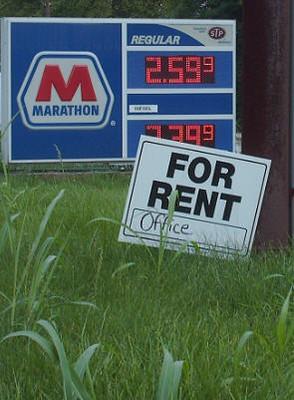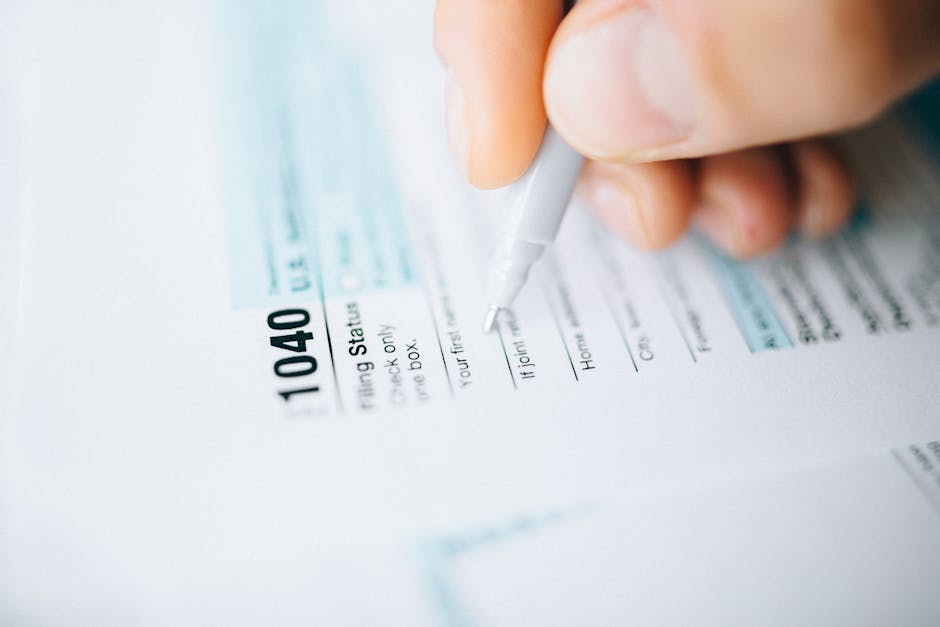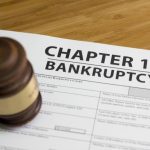
Welcome to the wild and wacky world of Chapter 13 bankruptcy in the ever-confusing state of New Jersey! It’s like navigating a maze full of toll roads, beach traffic, and diners on every corner. But fear not, brave soul, for we are here to help you navigate the twists and turns of this financial rollercoaster with a dash of humor and a sprinkle of Jersey attitude. So grab your pork roll and cheese sandwich, sit back, and let us guide you through the bumpy road to financial freedom in the Garden State.
Understanding Chapter 13 Bankruptcy in New Jersey
So you’re thinking about filing for Chapter 13 bankruptcy in New Jersey, huh? Well, strap in and get ready for a wild ride through the world of debt restructuring!
First things first, let’s talk about what exactly Chapter 13 bankruptcy is. This type of bankruptcy allows individuals to create a repayment plan to pay back their debts over a period of three to five years. It’s like a financial diet - you have to stick to the plan if you want to see results!
One of the perks of filing for Chapter 13 bankruptcy is that it can stop foreclosure on your home and prevent your car from being repossessed. Hey, who knew bankruptcy could be so handy?
But remember, Chapter 13 bankruptcy isn’t a get-out-of-debt-free card. You still have to pay back a portion of your debts, so don’t go blowing all your money on a shopping spree just yet. And make sure you stay on top of those payments, because the court will be watching! Good luck on your bankruptcy journey, New Jersey style!
Eligibility Requirements for Filing Chapter 13 Bankruptcy
Before diving headfirst into the world of Chapter 13 bankruptcy, you must first make sure you meet the eligibility requirements. Imagine this as a checklist, but instead of checking off boxes, you get to jump through hoops. Isn’t that fun?
Here are the main :
- Regular Income: You must have a regular income that allows you to make monthly payments to repay your debts. Think of it as a fun little subscription service, but instead of getting a monthly box of goodies, you’re paying off your debts. Yay!
- Unsecured Debt Limit: Your unsecured debts must be less than $394,725. That’s a lot of debt to accumulate, but hey, it’s all a part of the bankruptcy experience, right?
- Secured Debt Limit: Your secured debts must be less than $1,184,200. Don’t worry, this isn’t Monopoly money we’re talking about here. It’s just the amount of debt you’ll need to have to qualify for Chapter 13 bankruptcy.
So, if you have a regular income, your debts fall within the specified limits, and you’re ready to take on the challenge of navigating the world of Chapter 13 bankruptcy, congratulations! You’re now one step closer to financial freedom. Time to pop the champagne (or sparkling cider if you’re on a budget)!
The Process of Filing a Chapter 13 Bankruptcy Petition in NJ
Filing for Chapter 13 bankruptcy in New Jersey doesn’t have to be as intimidating as it sounds. Here’s a breakdown of the process with a touch of humor thrown in!
First things first, gather all your financial documents like tax returns, pay stubs, and bills. Trust me, you don’t want to be scrambling around looking for that one elusive piece of paper the night before your court date.
Next, find yourself a good bankruptcy attorney. Think of them as your fairy godmother, but instead of turning a pumpkin into a carriage, they’ll be turning your debt into a manageable repayment plan. Plus, they’ll handle all the complicated legal stuff so you can focus on binge-watching your favorite show.
Once you’ve got all your paperwork in order and your attorney hired, it’s time to actually file the petition. This involves submitting your financial information to the bankruptcy court and attending a meeting of creditors. Don’t worry, it’s not as scary as it sounds. Just show up, answer a few questions, and you’ll be on your way to financial freedom in no time!
Creating a Repayment Plan in Chapter 13 Bankruptcy
So, you’ve found yourself in the world of Chapter 13 bankruptcy and now you’re thinking, “How on earth am I going to create a repayment plan that actually works?” Well, fear not, my bankrupt friend, because I’m here to guide you through the process with a dash of humor thrown in for good measure.
First things first, you’ll need to calculate your disposable income – that’s the amount of money you have left over after paying all your necessary expenses. This will determine how much you can afford to pay back to your creditors each month. Feel free to shed a tear or two as you bid farewell to that daily $5 latte habit.
Next, it’s time to prioritize your debts – think of it as playing a twisted game of financial Jenga. Your secured debts (like your mortgage or car loan) will take top priority, followed by any overdue taxes or child support payments. Unsecured debts (credit card bills, medical expenses) will have to fend for themselves at the bottom of the list – sorry, guys, no VIP treatment here!
Once you’ve sorted out who gets paid first, you can start crafting your repayment plan. This is where you’ll outline how much you’ll pay each month, for how long, and to whom. Think of it like creating a budget, but with a side of legal drama. Be sure to include all your creditors, even the ones you’d rather avoid like the plague – after all, they’ll be keeping a close eye on you throughout the bankruptcy process.
Navigating the Confirmation Hearing in a Chapter 13 Bankruptcy Case
So, you’ve found yourself knee-deep in a Chapter 13 bankruptcy case and now you have to navigate the treacherous waters of the confirmation hearing. Fear not, fellow debtor! With a little bit of wit and a whole lot of luck, you’ll make it through unscathed.
First things first, make sure you come prepared to the confirmation hearing. This means bringing all the necessary paperwork, documents, and a fake mustache just in case you need to go incognito. Remember, it’s always better to be over-prepared than under-prepared. And who knows, that fake mustache might just come in handy if you need a quick escape.
During the hearing, try to keep your cool even if the trustee starts asking questions that make your palms sweat and your heart race. Remember, they’re just doing their job (and trying to make you squirm a little). Take deep breaths, channel your inner zen master, and with a little luck, you’ll be out of there in no time.
And lastly, don’t forget to celebrate once the confirmation hearing is over! Treat yourself to a fancy dinner, buy yourself a little something nice, or simply take a moment to pat yourself on the back for making it through one of the most nerve-wracking parts of the bankruptcy process. You deserve it!
Completing the Chapter 13 Bankruptcy Process in New Jersey
So, you’ve managed to survive the grueling process of Chapter 13 Bankruptcy in New Jersey. Congratulations! Now it’s time to tie up all those loose ends and finally close this chapter in your financial life.
- Make sure all payments are up to date and all obligations have been fulfilled. You don’t want any surprises popping up at the last minute.
- Contact your bankruptcy trustee to schedule a final meeting. It’s like the climactic showdown in a movie, except without any explosions or car chases (hopefully).
Once all the paperwork has been signed, sealed, and delivered, take a moment to pat yourself on the back. You’ve survived the financial rollercoaster that is Chapter 13 Bankruptcy in New Jersey!
FAQs
How long does a Chapter 13 bankruptcy typically last in NJ?
Well, strap in for the long haul, my friend. Chapter 13 bankruptcies in NJ typically last anywhere from three to five years. That’s a lot of time to perfect your ramen noodle cooking skills.
Can I keep my house and car during a Chapter 13 bankruptcy in NJ?
Absolutely! As long as you keep up with your repayment plan, you can hold onto your beloved possessions. Just make sure to hug your car and house extra tight before bed each night.
What is the role of a trustee in a Chapter 13 bankruptcy in NJ?
Think of the trustee as the financial watchdog in this bankruptcy circus. They’ll oversee your repayment plan, make sure you’re playing by the rules, and probably ask to see your monthly budget (they just want to make sure you’re not spending all your money on avocado toast).
Can I file for Chapter 13 bankruptcy in NJ if I have a steady job?
Absolutely! Having a steady job won’t disqualify you from filing for Chapter 13 bankruptcy. In fact, it may make it easier for you to stick to your repayment plan and pay off your debts. So keep on keeping on at that 9-5 grind!
What happens after I complete my Chapter 13 bankruptcy plan in NJ?
Cue the confetti and pop the champagne (or sparkling cider if you’re on a budget)! Once you’ve successfully completed your repayment plan, your remaining eligible debts will be discharged. It’s like a financial fresh start – embrace it!
Good Luck, Bankruptcy Navigators!
Remember, Chapter 13 bankruptcy may seem daunting, but with the right guidance and a sprinkle of optimism, you can navigate your way through it smoothly. Just keep your chin up, your paperwork organized, and your sense of humor intact. And if all else fails, remember that bankruptcy is not the end of the world - it’s just a bumpy detour on the road to financial recovery. So buckle up, stay positive, and happy navigating!










